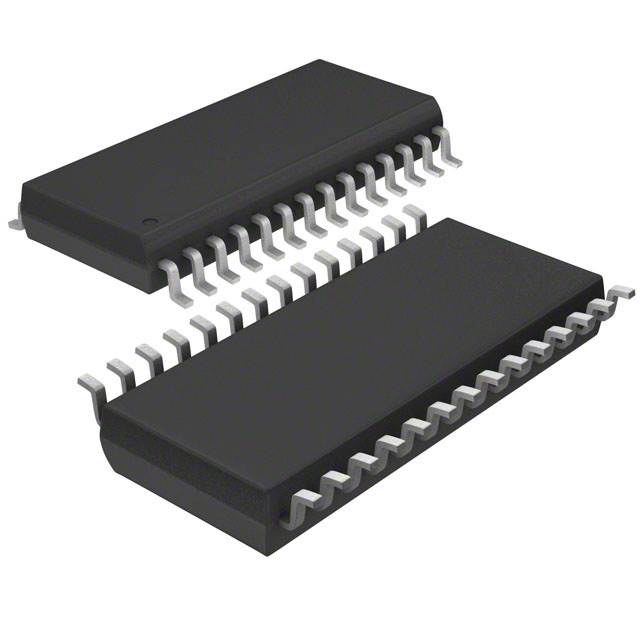

Texas Instruments
MSP430FR5730IPW
Microcontrollers




.png?x-oss-process=image/format,webp/resize,p_30)


MSP430FR5730IPW Description
The Texas Instruments MSP430FR5730IPW is a low-power microcontroller (MCU) that belongs to the MSP430 family. It is designed for a wide range of applications, including industrial, automotive, and consumer electronics. Here's a brief description, features, and applications of the MSP430FR5730IPW:
Description:
The MSP430FR5730IPW is a 16-bit, RISC-based, mixed-signal MCU with a high-performance CPU and integrated peripherals. It is built on a 16-bit architecture with a high code density and a wide range of integrated peripherals, making it suitable for various applications that require low power consumption and high performance.
Features:
- CPU: 16-bit RISC CPU with high code density and low power consumption.
- Memory: 512 kB on-chip flash memory, 64 kB RAM, and 2 kB information memory.
- Clock System: Flexible clock system with low-power modes and frequency synthesis.
- ADC: 12-bit ADC with up to 8 input channels.
- DAC: 8-bit DAC with 1 output channel.
- Timers: Multiple timer modules, including real-time clock (RTC) and watchdog timer (WDT).
- Communication Interfaces: UART, SPI, I2C, and USB.
- Power Management: Low-power modes, including standby, sleep, and deep-sleep modes.
- Security: AES-128/256 encryption and secure boot functionality.
- Package: The IPW package is a 100-pin plastic wide quad flat package (WQFP).
Applications:
- Industrial Automation: Control and monitoring systems, motor control, and sensor interfacing.
- Smart Metering: Energy and utility metering, data acquisition, and communication.
- Automotive: In-vehicle infotainment systems, body control modules, and power management.
- Consumer Electronics: Home appliances, portable devices, and IoT devices.
- Medical Devices: Patient monitoring, wearable devices, and medical equipment control.
- Building Automation: Lighting control, HVAC systems, and security systems.
The MSP430FR5730IPW's combination of low power consumption, high performance, and a wide range of integrated peripherals make it a versatile choice for various applications that require efficient processing and communication capabilities.
Tech Specifications
MSP430FR5730IPW Documents
Download datasheets and manufacturer documentation for MSP430FR5730IPW
 MSP430FR57yy Qualification 16/May/2014
MSP430FR57yy Qualification 16/May/2014  MSP430FR573x Datasheet MSP430FR57xx Family User Guide
MSP430FR573x Datasheet MSP430FR57xx Family User Guide  BT-MSPAUDSINK: Bluetooth 4.0, 250 kbps MSP430-PIR: Low Power Smart PIR Sensor
BT-MSPAUDSINK: Bluetooth 4.0, 250 kbps MSP430-PIR: Low Power Smart PIR Sensor  Low-Power Touch Through Glass Reference Design
Low-Power Touch Through Glass Reference Design  MSP430FR573x Datasheet
MSP430FR573x Datasheet  Mult PN PART MARKING 08/Dec/2023
Mult PN PART MARKING 08/Dec/2023 Shopping Guide


















.png?x-oss-process=image/format,webp/resize,h_32)










